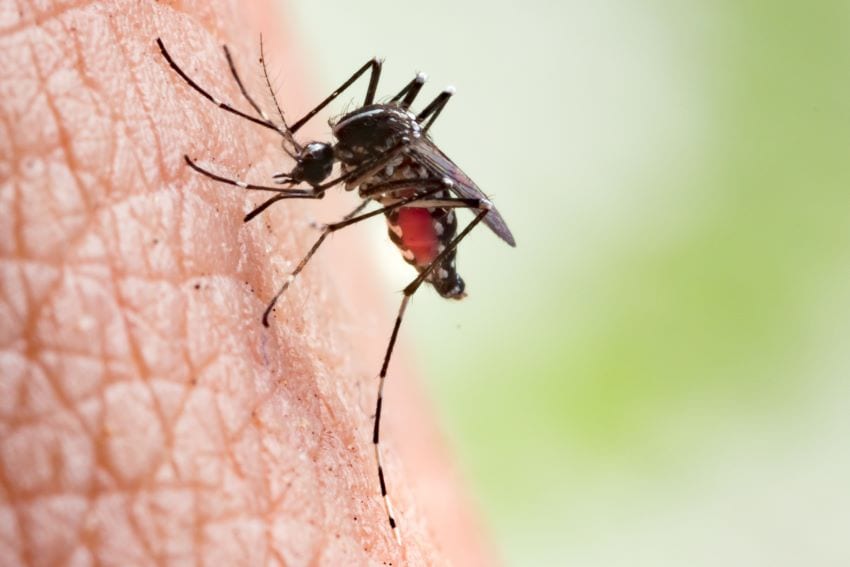
The Ministry of Health and Wellness is warning Barbadians to be aware of the signs of severe dengue as cases of dengue fever continue to rise.
The country is currently experiencing an outbreak, along with other Caribbean islands, with the number of suspected cases increasing on a daily basis.
The Ministry reports that, so far, there have been no deaths attributed to the mosquito-borne illness, which is transmitted by the Aedes Aegypti mosquito.
However, health authorities have advised members of the public to implement measures to avoid contracting the illness, such as wearing repellent and protective clothing; eliminating breeding sites by keeping surroundings clean; and using protective window and door screens as well as mosquito nets in the home.
Dengue fever is caused by any one of four dengue virus (DENV) serotypes or strains. Each DENV strain could produce mild to severe illness. According to research, persons with healthy immune systems can only get each strain once.
Senior Medical Officer of Health, Dr. Leslie Rollock, who is responsible for infectious diseases, environmental matters and surveillance, said dengue infection, regardless of the type, is indistinguishable.
According to her, it may be asymptomatic, which means the person has no symptoms. But if it is symptomatic, most people would experience in the initial phase high fever, headache, pain, especially behind the eyes and on movement of the eyes; joint pains; skin rash, either all over the body or just over the joints; and upset stomach, which could lead to vomiting or diarrhoea. Symptoms usually last two to seven days.
If individuals continue to deteriorate after that, it is critical to look for the warning signs of severe dengue. Although less than one per cent of persons with severe dengue will die, Dr. Rollock emphasised that early detection and access to proper supportive medical care could save lives.
“When the fever starts to go down [in the initial phase], then the person feels worse. They get abdominal pain; if they had vomiting, it gets worse, and they may notice that their gums are bleeding. Their appetite may not return and they may get evidence that fluid is collecting in areas of the body; those are signs to go to your doctor and for your doctor to take note of, for admission because the warning signs may predict severe disease,” she explained.
The Senior Medical Officer of Health added that while anyone could get severe dengue, children and young persons were usually most affected during an outbreak.
“Even though a person may get the severe disease, they may not die if they are managed through that period, which is 24 to 48 hours in a hospital,” she said.
Persons with severe dengue may experience dehydration and excessive bleeding for which they would need urgent clinical care.
